Waterproofing Now Prevents High Costs Later!
What is Basement Waterproofing?
Basement Waterproofing is the use of technology, material, and products to protect the basement or foundation of a home from the damaging effects of groundwater. Without some form of defense against moisture, a structure could be thoroughly undone over time as groundwater forces its way through porous materials, leaving behind signs of its persistence, like condensation, efflorescence, and the heavy smell of mildew. If left unattended, the damage could be devastating, and cost egregious amounts to fix–even worse, water leads to mold and mildew, which can cause potentially fatal health issues.
We have many satisfied customers who called us for basement waterproofing in Cherry Hill NJ, Marlton NJ, and Mt. Laurel area, who would be happy to share their experience with you!
DryMaster Basement Waterproofing explained
Basement Waterproofing techniques can include the use of one or more of the following:
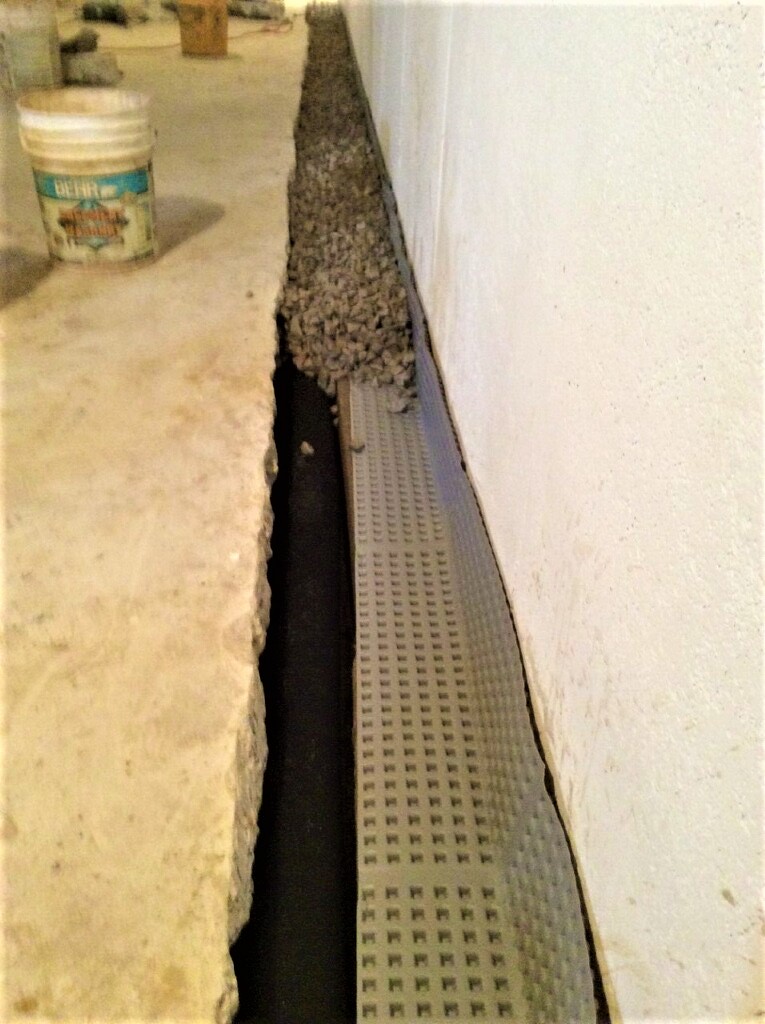
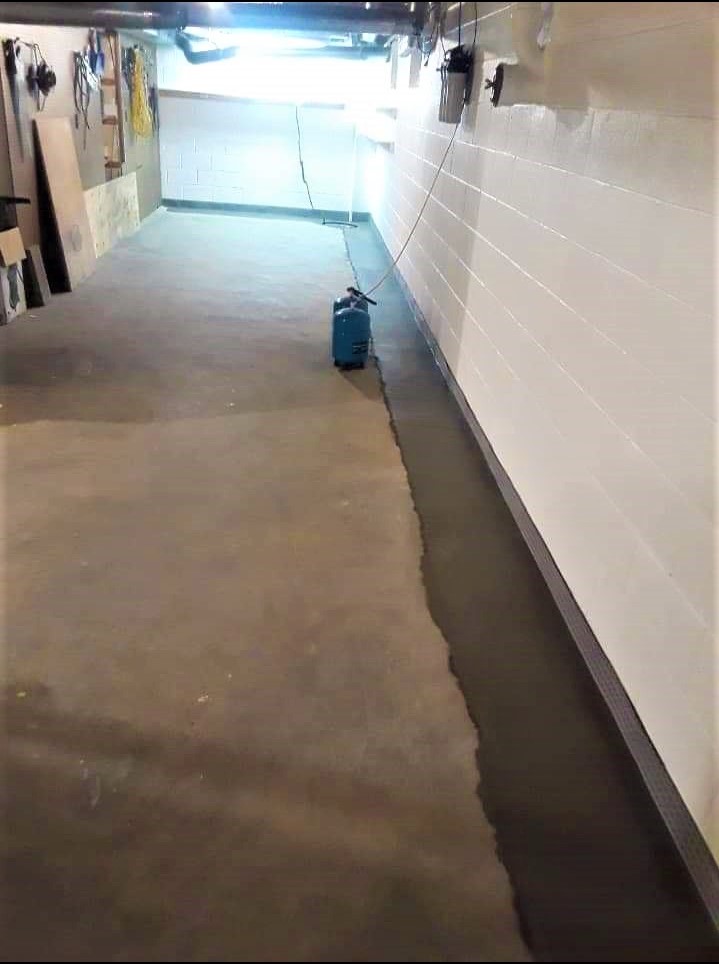
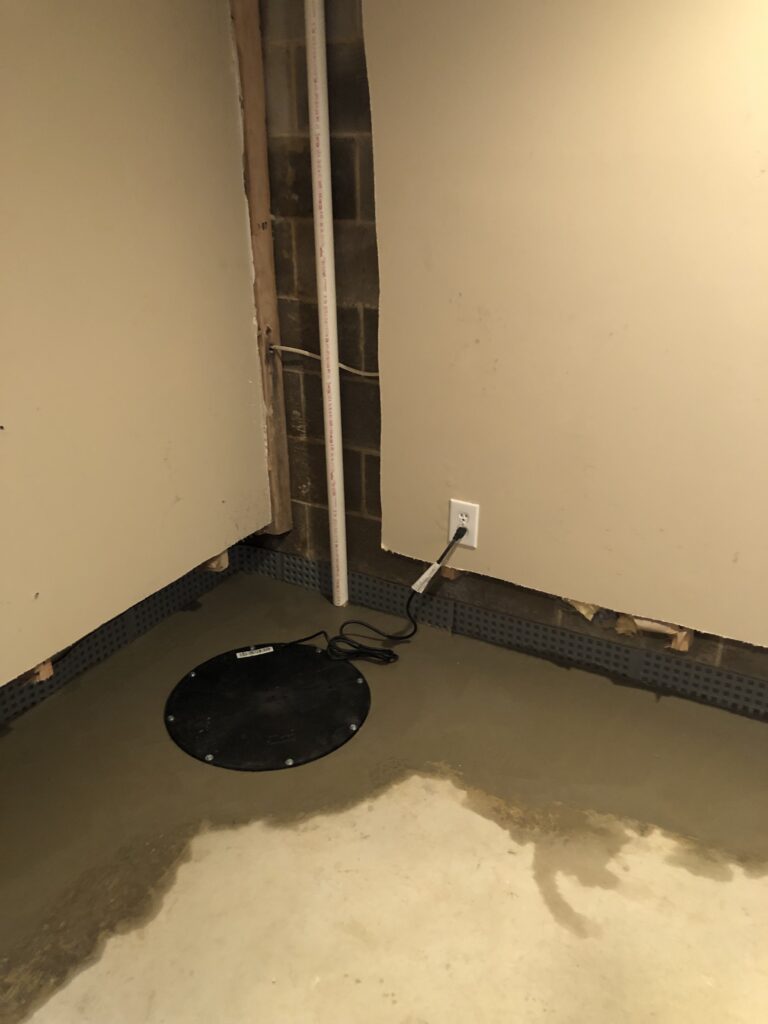
- French Drains
- Sump Pumps
- Industrial Sealants
- Rail Systems
- Tract Systems
- Drainage Channels
- Excavation / Grading
- Landscaping
Now that you have received an in-depth idea of the common causes of wetness in the basement, it is essential to know how basement waterproofing works to keep the area dry around the interior and exterior of your home.
DryMaster Basement Waterproofing is the expert in the NJ, PA, DE areas and is here to serve your family.
Call now for more information!
What Causes a Wet Basement?
When your home was built and your basement dug out, soil that was compacted for long periods of time was disturbed. That soil is usually mostly clay which does not allow water to percolate through it easily. Instead, water veins form in the clay soil surrounding your basement walls. After a period of time, the exterior coating on your basement walls wears away and water settling into the ground from rain forces itself through your basement walls through lateral pressure.
If your basement walls are constructed of cinder blocks, the water forcing itself against them works its way into the hollow cavities of the blocks. The blocks eventually fill to a height in which the weight of the water pushes itself downward to the bottom level of the basement wall where the wall meets the floor, and the water then enters your basement floor.
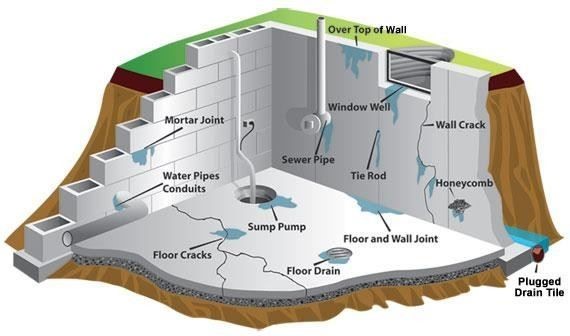
Most often when water builds up in the clay bowl surrounding your basement, water that has previously settled further in the ground, under the basement floor, begins to build up also causing the underground water table to rise and press up against the basement floor by hydrostatic pressure.
This water also seeks release at the point of least resistance again usually at the cove base where the basement walls and floor meet. The result is a torrent of water flooding your basement floor, soaking your basement walls, and eroding your foundation. This ground water is highly acidic, and it erodes the concrete securing your cinder block walls together causing more leaks and, in some cases, collapse.
Damage Caused By Wet Basements
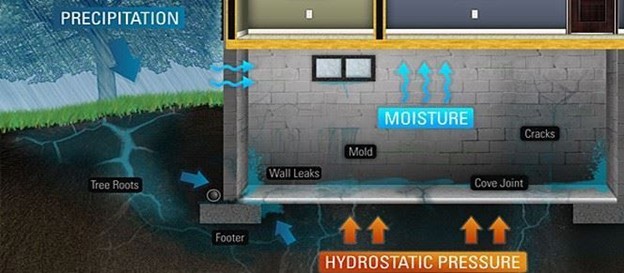
A wet basement is fraught with dangers from electrocution, slip and fall, structural damage, destroyed furnace and water heater, to the unhealthy condition of a sick home syndrome full of mold and mildew affecting your children and pets.
Basement water problems cannot be ignored, if you have noticed foundation leaks in your basement or have the beginning of mold growth in any area of your house making repairs early will not only save you money but will also protect your property from significant damage and your family’s health from the serious effects of mold growth.
There are several causes for water leakage and mold growth, and investing in having a professional waterproof your home is the best solution.
Water leakage can be caused by both visible structural and foundation issues, as well as unseen problems. Some common signs that you home may have a water or mold problem are:
- High levels of humidity or dampness in your home
- Recurring leaks both on the interior and exterior of your home
- Water stains on interior walls or ceilings
- Water stains on exterior foundation walls or floors
- Rust stains at water sources such as taps
- Puddles at the foot of exterior walls
- White powdery substance on walls/floor
- Musty or damp smell
Why Waterproof Your Basement?
Reduce The Risk Of Flooding
Flooding is always a possibility for basement levels when there are heavy rains. Our basement waterproofing specialists will protect your home by diverting how water flows around your property and keeping it from draining into your basement and flooding it. This way, you don’t have to worry about water damage, mold, or possessions getting ruined.
Reduce Overall Moisture
Moisture inside can heat up a space and create an environment that feels uncomfortable and allows mold to grow. Since water goes up as it evaporates, the problem may be starting from the basement level. You can curb this effect from happening by having your basement waterproofed, and it will cool down the home.
Protect Your Property
Waterproofing your basement is a smart idea, because they are not built to withhold moisture, and it can quickly eat away at the space. Water damage warps wood, causes walls to rot, and will ruin any items stored in the basement. Waterproofing services also help keep the foundation intact and less prone to shifting.
Choose DryMaster Basement Waterproofing of New Jersey for Basement Waterproofing Solutions
Our highly-trained specialists can install a complete basement waterproofing system with speed and accuracy. With quality at the forefront of every basement waterproofing project, we strive to provide an exceptional experience from start to finish. We never use subcontractors, and our professionally-trained crews minimize the mess and disruption at your home.
Do you have a basement that floods or leaks? Contact us today online or by calling 877-376-1815 to schedule your free basement waterproofing cost estimate in New Jersey.
